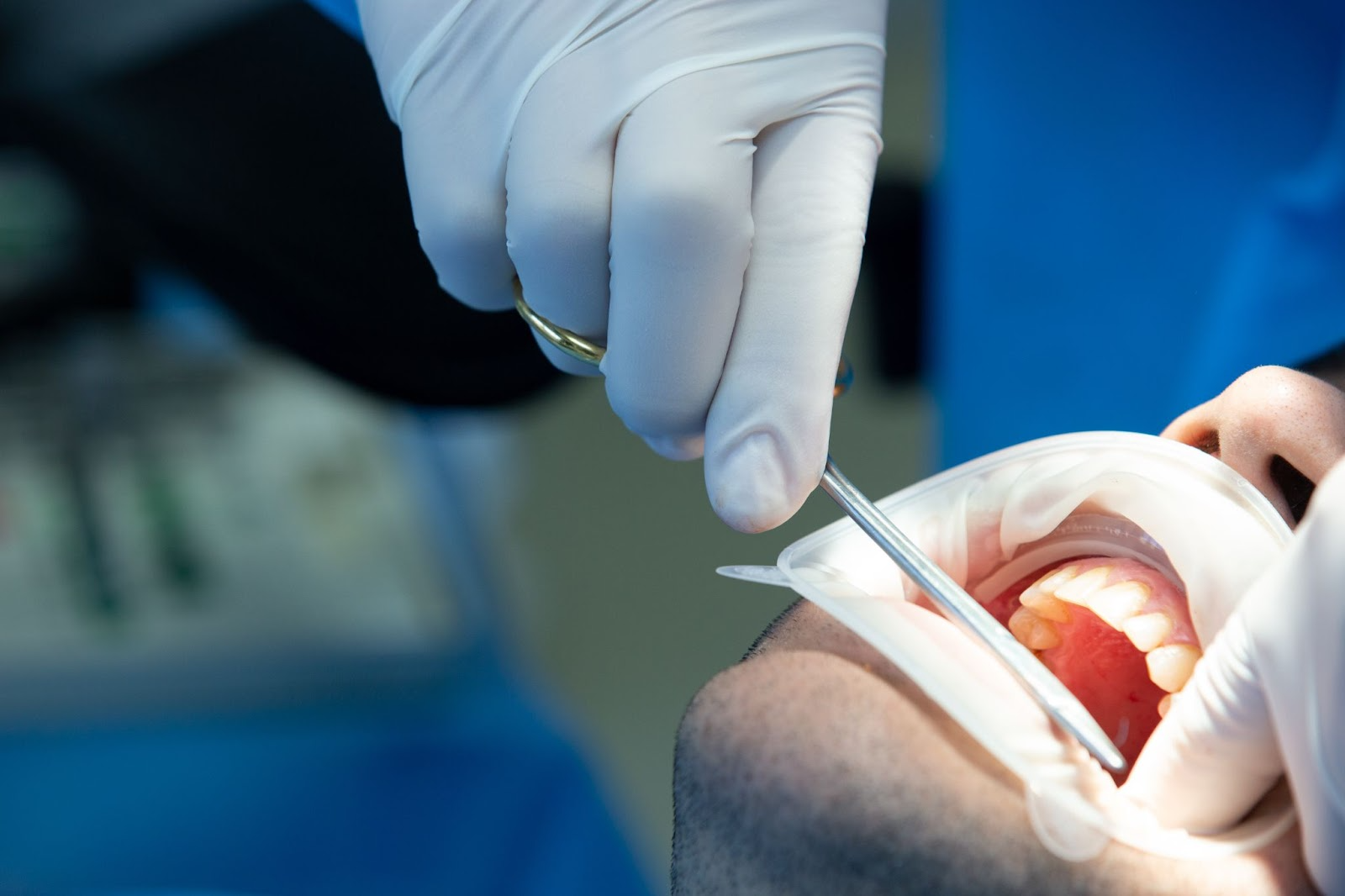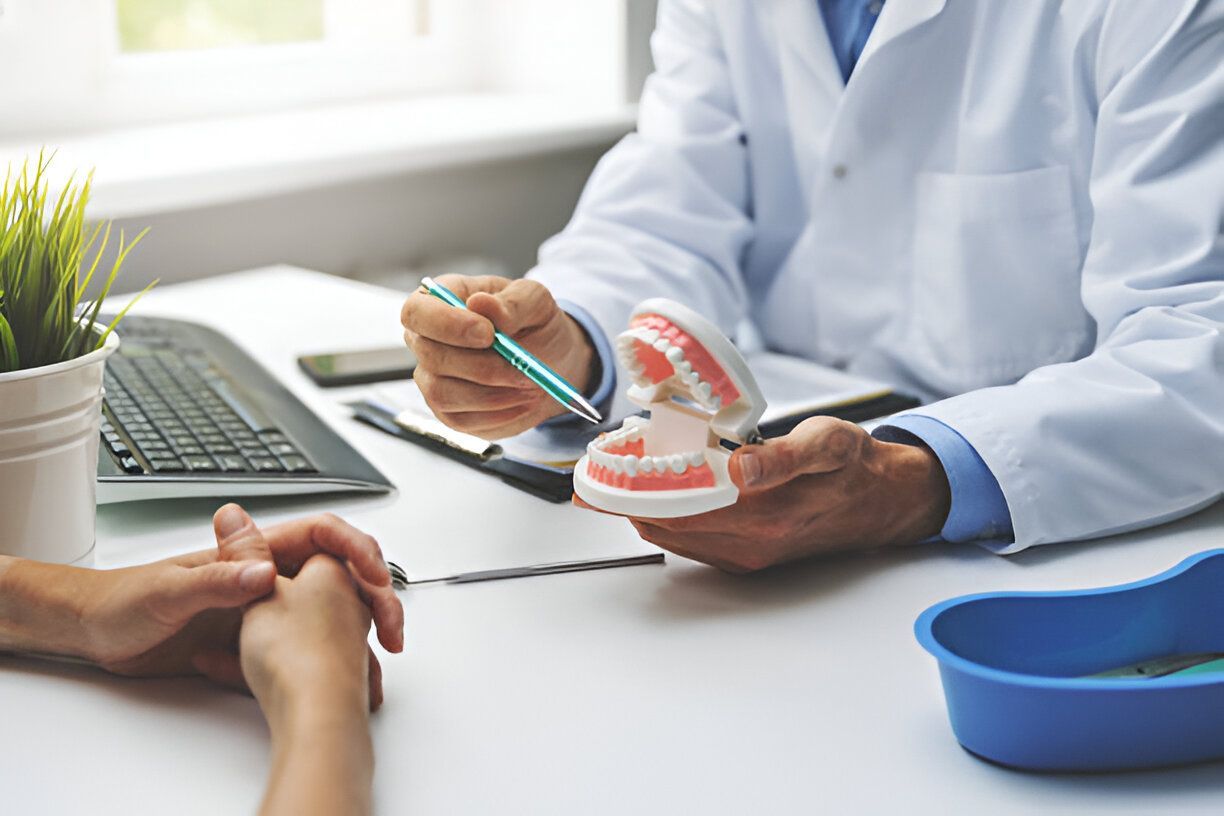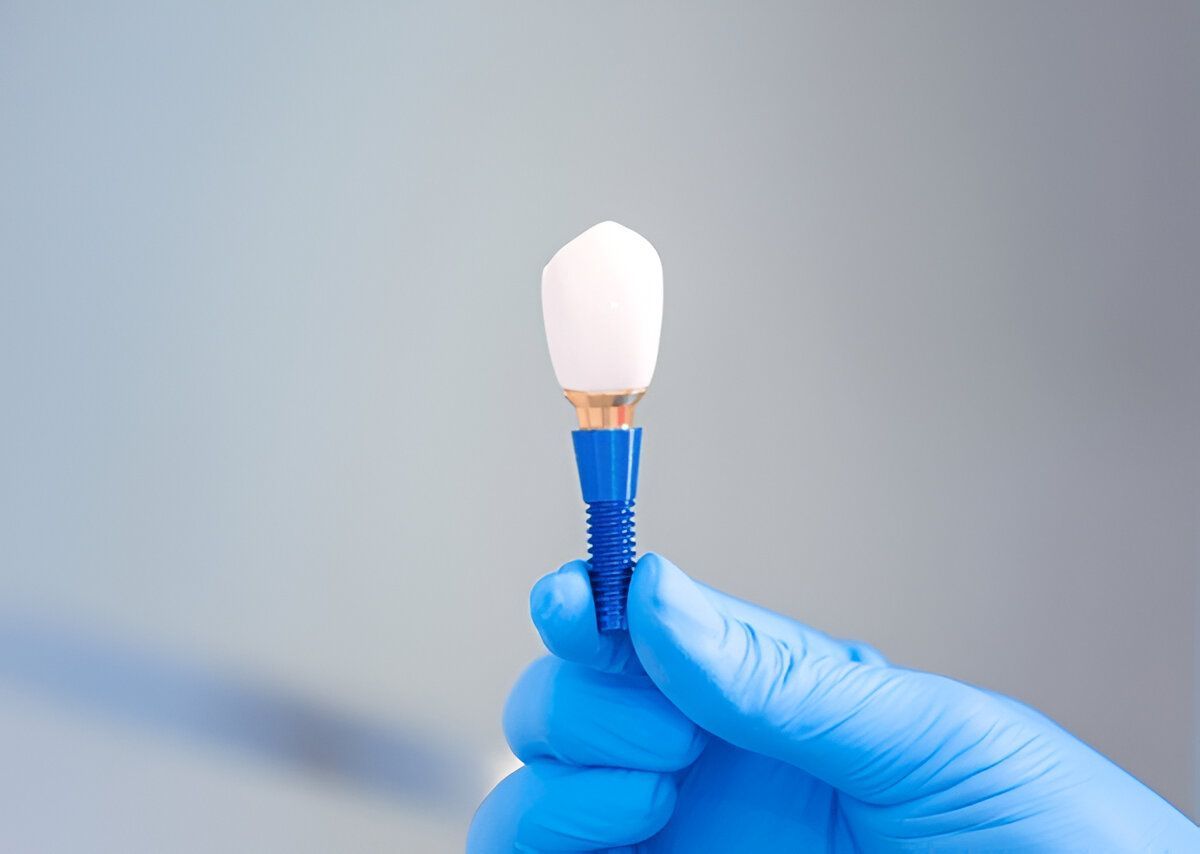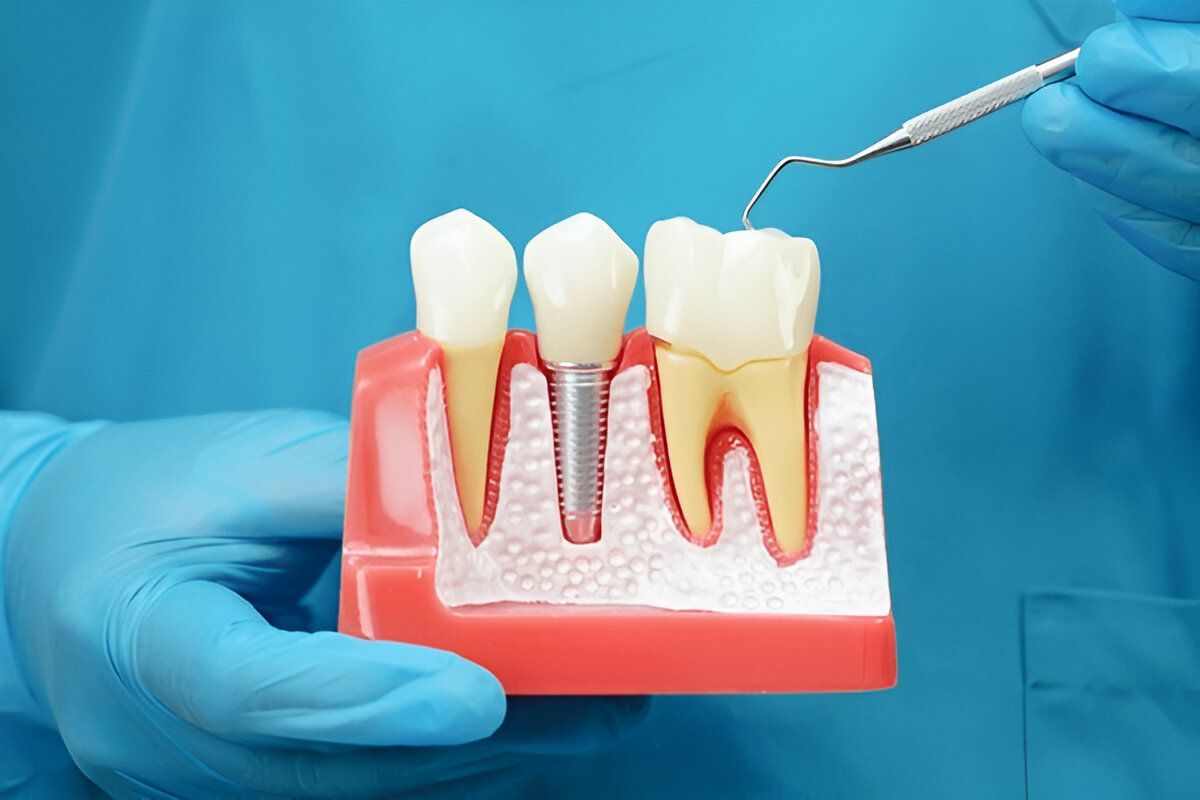Why Sudden Gum Swelling Is an Emergency — Even Without Pain

Sudden gum swelling is a dental condition that requires immediate attention, even if there is no pain. Gum health is often overlooked, but it is essential for overall oral well- being. Swollen gums may seem harmless at first, but they often indicate underlying issues that can worsen if left untreated.
Many people think of dental emergencies as situations with severe pain, but it's important to understand that discomfort isn't always a reliable sign of serious problems. Just because there is no pain doesn't mean there is no risk. Sudden gum swelling should be treated as an emergency , emphasizing the need for prompt professional evaluation.
Ignoring swollen gums can lead to more severe complications, affecting both oral health and general wellness. By understanding the seriousness of this condition and
seeking timely intervention, you can prevent further damage and ensure that your gums—and teeth—stay healthy and strong.
A skilled dental team can properly assess and treat any swelling. Prioritize your gum health by taking action when you notice unusual changes, protecting your smile for the future.
It's important to remember that maintaining good oral hygiene, including flossing your teeth regularly , can help prevent conditions like gum swelling. Additionally, if you're interested in improving your smile beyond just addressing gum issues, there are various options available in cosmetic dentistry that you should know about. Finally, if you're looking for ways to achieve a brighter smile, there are effective methods on how to get whiter and brighter teeth at home that you might find helpful.
Understanding Sudden Gum Swelling
Sudden gum swelling is an unexpected enlargement of the gum tissue, often signaling potential oral health issues. While it might seem harmless, this condition can be a sign of serious underlying problems that require immediate attention.
- Definition : Sudden gum swelling refers to a rapid increase in the size of the gums. This change can occur without any warning and may or may not be accompanied by pain.
- Potential Implications : The causes of swollen gums range from minor irritations to severe conditions such as infections or systemic diseases. Ignoring these symptoms can lead to complications that impact not only oral health but also overall well-being.
Common Symptoms Accompanying Swollen Gums
Recognizing the symptoms of gum problems is crucial for timely intervention. Here are some signs to look out for:
- Swelling : Obvious puffiness or enlargement of the gum tissue.
- Redness : Gums may appear more red than usual, indicating inflammation.
- Bleeding : Especially during brushing or flossing, bleeding can be a common symptom.
- Changes in Texture : Gums may feel softer or more tender than normal.
- Persistent Bad Breath : Often associated with underlying infections.
Importance of Recognizing Swollen Gums
Recognizing swollen gums as a sign of underlying issues is vital. Swollen gums should never be ignored , even if they aren't painful. They serve as an early warning system for conditions that could escalate if left untreated:
- Gum Disease : Early detection can prevent progression to more advanced stages that cause tooth loss.
- Infections : Prompt treatment can prevent the spread to other areas, reducing risk and complexity of necessary treatments.
- Systemic Health Issues : Sometimes, swollen gums are linked to broader health problems like diabetes or heart disease.
By identifying and addressing the causes of swollen gums promptly, you maintain not only your oral health but also contribute to your overall health management. It's also important to note that certain oral hygiene mistakes can worsen these issues.
Additionally, conditions like tooth cavities or tooth discoloration could also arise from neglected gum health. Therefore, understanding and addressing these symptoms early on is essential for maintaining both oral and overall health.
Common Causes of Sudden Gum Swelling
Sudden gum swelling can be alarming, especially when it appears without pain. Several factors might contribute to this condition, each with distinct implications for your oral health.
- Gum
Disease
Periodontitis , commonly known as gum disease, is a leading cause of gum swelling. It occurs when plaque accumulates on the teeth and hardens into tartar, leading to inflammation of the gums or gingiva. Early stages may show minimal symptoms, but as it progresses, you might notice swelling, bleeding gums during brushing, and even tooth loosening. - Dental
Abscesses
An abscess is a pocket of pus resulting from an infection in the tooth or gums. This condition often presents swelling and can silently progress without immediate pain. Abscesses require urgent dental attention to prevent deeper infections that could affect your overall health. - Oral
Cancer
While less common, oral cancer is a serious cause of swollen gums that cannot be overlooked. It may present as persistent swelling or lumps in the mouth. Regular dental check-ups are crucial for early detection since these swellings often go unnoticed until they have advanced significantly. - Allergies
or
Medications
Allergic reactions to dental products such as toothpaste or mouthwash can trigger gum irritation and consequent swelling. Certain medications may also increase the risk of gum problems by causing dryness or altering the body's response to bacteria.
Understanding these underlying causes helps prioritize your oral health by recognizing symptoms early and seeking professional advice when needed. Each factor necessitates different approaches for prevention and treatment tailored to maintain healthy gums and overall well-being.
For more information on maintaining oral health and understanding various dental conditions, you might find helpful resources on the Park Dental BK blog . Additionally, if you're ever in doubt about the safety of certain dental procedures such as X-rays, it's always best to consult with your dentist who can provide reliable information based on current standards and practices.
Why Pain Is Not a Reliable Indicator of Gum Health Issues
Swollen gums can often occur without the accompanying discomfort of tooth pain, making it essential to look beyond pain as an indicator of gum health. This underscores the importance of understanding the causes of sudden gum swelling and recognizing that swelling is an emergency — even without pain .
Key Signs to Watch For:
- Changes in Gum Color : Swollen gums may appear red or darker than normal. This change in color can signal underlying issues that need prompt attention.
- Altered Texture : Healthy gums typically have a firm texture. If your gums feel spongy or soft, this could indicate gum health problems, despite the absence of pain.
- Bleeding During Oral Care : While not always painful, bleeding when brushing or flossing is a warning sign that should not be ignored.
Understanding that gum swelling can manifest silently highlights why it is crucial to pay attention to these subtle changes. Ignoring them due to a lack of pain could lead to more severe oral health complications. Always prioritize professional evaluations if you notice any unusual signs in your gums, ensuring early intervention and treatment for optimal dental health.
The Risks of Ignoring Swollen Gums
Ignoring swollen gums can lead to a series of problems that threaten both your oral health and overall well-being.
The Dangers of Untreated Swollen Gums
Untreated swollen gums often become a breeding ground for bacterial infections, which can quickly worsen if not treated. These infections have the potential to spread to other areas, causing more severe health issues. For example, an abscess left untreated might not only harm nearby teeth but also result in systemic infections, emphasizing the urgent need to seek professional help for gum problems.
The Consequences of Long-Term Neglect
Prolonged neglect of swollen gums may lead to chronic conditions like periodontal disease. This can cause permanent damage to the gums and jawbone, potentially resulting in tooth loss. The effects go beyond oral health; studies indicate a connection between gum disease and systemic conditions such as heart disease and diabetes.
The Importance of Addressing Underlying Causes
Additionally, the underlying causes of gum swelling, such as cancer or significant infections, require immediate attention. Promptly addressing these causes is crucial to
prevent serious outcomes. By identifying these risks early on, you can avoid further complications and effectively maintain both your oral and overall health. Prioritizing timely treatment ensures that any underlying issues are dealt with before they develop into more severe problems.
When to Seek Professional Help for Sudden Gum Swelling
It's important to know when to get professional help for sudden gum swelling. Here are some signs that mean you should see a dental care professional right away:
- Severe Swelling : If your gums are very swollen and a large area is affected, you need to see a specialist quickly.
- Difficulty Breathing or Swallowing : If you're having trouble breathing or swallowing, it could mean an infection has spread beyond your gums and you need immediate medical attention.
- Persistent Bleeding : If your gums keep bleeding without any obvious reason like brushing or flossing, you should get a professional evaluation.
- Changes in Gum Color or Texture : If you notice a significant change in color (like dark red or purple) or texture of your gums, it may indicate underlying health problems.
- Fever or Malaise : If you have a fever or feel generally unwell along with your gum swelling, it could suggest a more serious infection spreading in your body.
Ignoring these signs can lead to complications that harm your oral health and overall well-being. Getting timely help allows you to find treatment options for swollen gums based on the specific cause.
The expertise of professionals ensures that you receive proper guidance and care, addressing not just the symptoms but also preventing future occurrences. Maintaining vigilance and prioritizing dental care can help preserve both your gum health and peace of mind.
Treatment Options for Swollen Gums Based on Underlying Cause
Addressing
swollen
gums
effectively
requires
targeting
the
underlying
cause.
Various treatments
are
available,
each
tailored
to
specific
conditions
that
might
lead
to
gum swelling.
Here's a
look at
some of
the most
common approaches:
1. Root Canal Therapy for Abscesses
An abscess in the gum is a pocket of pus caused by infection. Swollen gums treatment often involves root canal therapy to eliminate the infection and save the tooth. During this procedure, an endodontist removes the infected pulp, cleans the interior of the tooth, and seals it to prevent further infection.
2. Drainage Procedures for Infections
For more severe infections, drainage procedures may be necessary. These involve creating an incision in the gum to allow pus to escape, reducing pressure and swelling. Antibiotics may also be prescribed to combat any lingering infection.
3. Deep Cleaning or Gum Surgery for Advanced Gum Disease
When gum disease progresses unchecked, it can lead to significant tissue damage and swelling. Treatments such as deep cleaning (scaling and root planing) help remove plaque and tartar from beneath the gumline, promoting healing and reducing inflammation. In more advanced cases, gum surgery might be necessary to repair damaged tissues or reshape bone structures.
Recognizing why sudden gum swelling is an emergency—even without pain—is crucial. Each treatment option plays a vital role in restoring oral health and preventing future complications. Early intervention not only alleviates discomfort but also safeguards against more serious dental issues down the road.
Understanding these treatment modalities underscores the importance of seeking professional care promptly when experiencing swollen gums, ensuring effective management of your oral health concerns.
Conclusion
Sudden gum swelling is more than a minor inconvenience. It signals that your gums need immediate attention. Prioritizing oral health means understanding the importance of prompt treatment for swollen gums. Ignoring this vital sign can lead to severe complications, affecting not just your oral health but your overall well-being.
- Prompt Action : Seeking professional evaluation at the first sign of gum swelling ensures timely diagnosis and treatment, preventing potentially serious outcomes.
- Oral Health Prioritization : Regular dental check-ups and awareness about gum health are crucial in maintaining healthy gums and preventing future issues.
- Professional Guidance : Consulting with dental professionals can provide clarity on the underlying causes and appropriate treatment options, ensuring peace of mind and optimal health.
By acknowledging the significance of sudden gum swelling and acting swiftly, you empower yourself to maintain robust oral health. Emphasizing early intervention not only safeguards your teeth and gums but also contributes to your overall quality of life.
FAQs (Frequently Asked Questions)
What is sudden gum swelling and why is it considered an emergency?
Sudden gum swelling refers to unexpected inflammation of the gums, which can occur without any accompanying pain. It is considered an emergency because it may indicate underlying oral health issues that require immediate attention, such as gum disease, abscesses, or even oral cancer.
What are the common causes of sudden gum swelling?
Common causes of sudden gum swelling include gum disease, dental abscesses, oral cancer, and allergic reactions to dental products or medications. Each of these factors can lead to significant health complications if not addressed promptly.
Why might swollen gums occur without pain?
Swollen gums can occur without pain because inflammation may develop due to underlying issues that do not immediately trigger discomfort. Changes in gum color or texture can be important indicators that something is wrong, making it essential to monitor these signs closely.
What are the risks of ignoring swollen gums?
Ignoring swollen gums can lead to serious complications, such as infections spreading to other areas of the body. Additionally, untreated conditions can result in long-term effects on both oral health and overall well-being.
When should I seek professional help for swollen gums?
You should seek professional help for swollen gums if you experience severe swelling, difficulty breathing, or any other alarming symptoms. Prompt evaluation by a dental professional is crucial for addressing potential underlying issues effectively.
What treatment options are available for swollen gums?
Treatment options for swollen gums depend on the underlying cause. These may include root canal therapy for abscesses, drainage procedures for infections, and deep cleaning or gum surgery for advanced cases of gum disease. A dental professional will recommend the appropriate treatment based on your specific condition.










